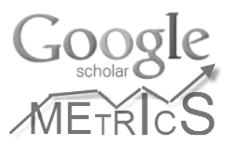¿De vuelta a la normalidad? análisis psicológico de la vuelta a clases en tiempos de postpandemia covid-19
Abstract
R E S U M E N
La pandemia ha impactado enormemente en la salud mental de la población, manifestándose sÃntomas de ansiedad, depresión, pánico, angustia, miedo y reacción al estrés. El ámbito educativo se ha visto mayormente afectado, tanto por los cambios producidos en las clases online y por la vuelta a las clases presenciales, lo que ha generado dificultades de adaptación tanto en docentes, estudiantes y apoderados. Se argumenta que la pandemia ha afectado el desarrollo de las habilidades socioemocionales generando una brecha, lo que ha repercutido en conductas de agresividad, falta de empatÃa, ansiedad, sÃntomas depresivos, dificultades para resolución de conflictos, en la regulación de impulsos y episodios de violencia escolar en la población infantojuvenil. Se argumenta que el desarrollo del cerebro en la población infantojuvenil se ha visto afectado, tanto por el confinamiento, la vulnerabilidad psicosocial y por el aumento a la exposición al internet y las redes sociales. Por último, se abordan los desafÃos que el sistema educativo debe enfrentar para superar esta situación, los cuales deben incluir a todos los actores, proyectos o programas vinculados a la cultura, seguridad y promoción de la salud mental escolar.
Palabras Clave: Confinamiento, COVID-19, Clases presenciales, Salud mental escolar, habilidades socioemocionales.
Â
A B S T R A C T
The pandemic has had a huge impact on the mental health of the population, manifesting symptoms of anxiety, depression, panic, anguish, fear and reaction to stress. The educational field has been mostly affected, both by the changes produced in online classes and by the return to face-to-face classes, which has generated adaptation difficulties for teachers, students and parents. It is argued that the pandemic has affected the development of socio-emotional skills, generating a gap, which has affected aggressive behavior, lack of empathy, anxiety, depressive symptoms, conflict resolution difficulties, impulse regulation, and episodes of violence. school in the child and adolescent population. It is argued that the development of the brain in the child and adolescent population has been affected, both by confinement, psychosocial vulnerability and by increased exposure to the Internet and social networks. Finally, the challenges that the educational system must face to overcome this situation are addressed, which must include all the actors, projects or programs linked to culture, safety and promotion of school mental health.
Keywords: Confinement, COVID-19, Face-to-face classes, School mental health, socio-emotional skills.
Â
R E S U M O
A pandemia impactou enormemente na saúde mental da população, manifestando-se sintomas de ansiedade, depressão, pânico, angústia, medo e reação ao estresse. O âmbito educativo se viu ainda mais afetado, tanto pelas mudanças produzidas com as aulas remotas e pela volta às aulas presenciais, o que tem gerado dificuldades de adaptação tanto em docentes, estudantes e seus responsáveis legais. O estudo postula* que a pandemia afetou o desenvolvimento das habilidades socioemocionais gerando uma lacuna**, que tem repercutido em comportamentos de agressividade, falta de empatia, ansiedade, sintomas depressivos, dificuldades para a resolução de conflitos, na regulação de impulsos e episódios de violência escolar na população infantojuvenil. Foi proposto que o desenvolvimento do cérebro na população infantojuvenil foi afetado tanto pelo confinamento, pela vulnerabilidade psicossocial quanto pelo aumento da exposição à internet e às redes sociais. Por último, foram abordados os desafios que o sistema educativo deve enfrentar para superar esta situação, os quais devem incluir a todos os atores, projetos ou programas vinculados à cultura, segurança e promoção da saúde mental escolar.
Palavras-chave: Confinamento; COVID-19; aulas presenciais; saúde mental escolar; habilidades socioemocionais.
Downloads
How to Cite
Issue
Section
License
Articles published in this journal are protected under the Creative Commons Attribution-NonCommercial-ShareAlike 4.0 International (CC BY-NC-SA 4.0) license. This means that authors retain full rights over their research and publications at all times. As a journal, we fully respect and promote the principles of open access established by this license, allowing the work to be shared, adapted, and distributed for non-commercial purposes, provided that appropriate credit is given to the authors and any derivative works are licensed under the same terms.
Authors are responsible for obtaining the required permission when they wish to reproduce part of the material (figures, etc.) from other publications.
Likewise, CNPs allows authors to host in their personal sites or other repositories that they deem convenient the Final and Definitive Version of the published article with the format assigned by the journal. In no case do we allow access to preprints of the article under evaluation or already published.
When submitting an article to CNPs you are aware that all the contents of CNPs are under a Creative Commons License. In which it is allowed to copy and share the contents freely, always making reference to the origin of the publication and its author.













